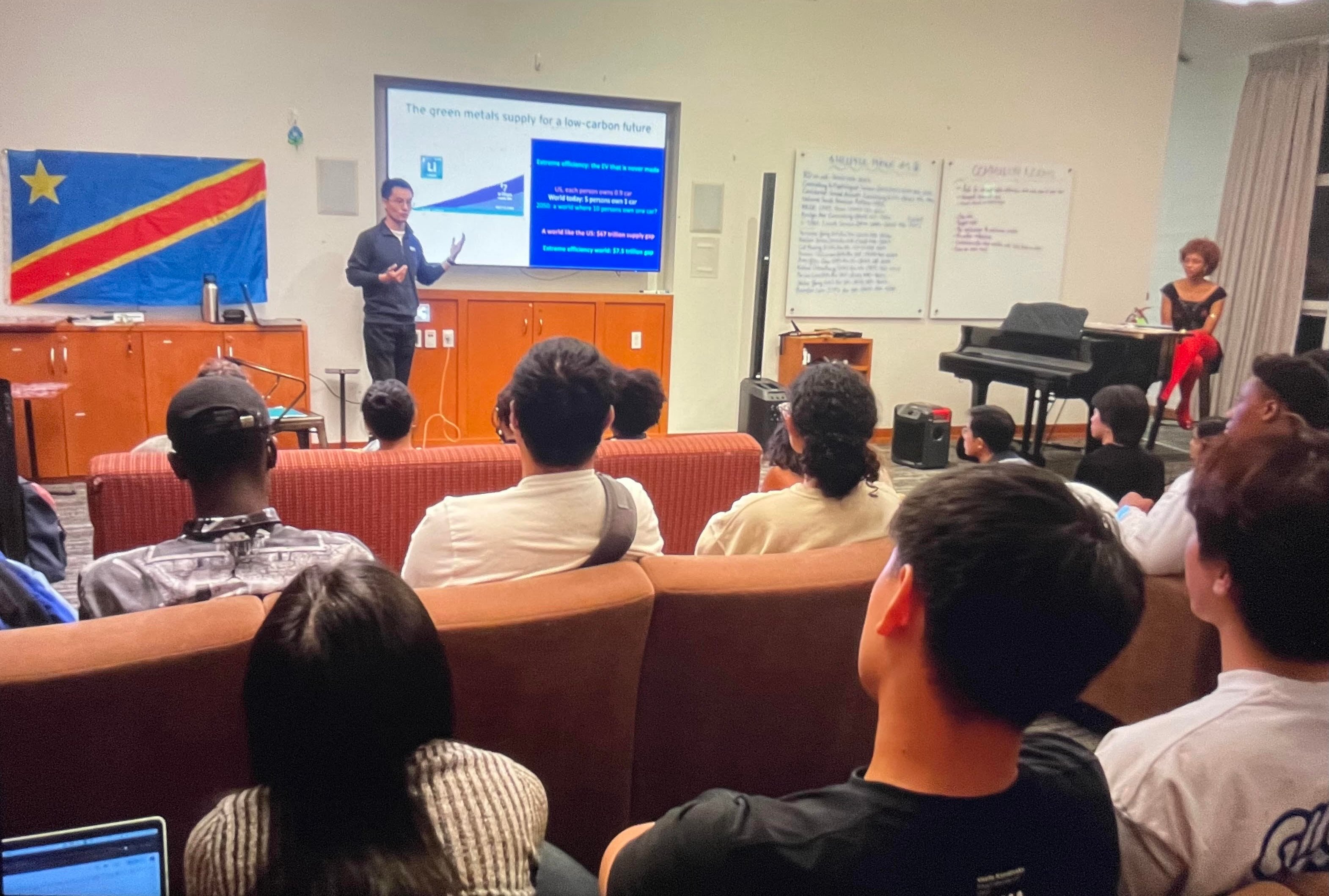Student activists and research scientists urged sustainable solutions and social responsibility at a Monday teach-in on mining, technology, human rights abuses and environmental challenges affecting the Democratic Republic of Congo (DRC). Sponsored by the Society of Black Scientists and Engineers, the gathering was the first event of Stanford’s inaugural “Breaking the Silence” Congo Week.
Although the Congo is one of the globe’s wealthiest countries in terms of natural resources, three-quarters of its population lives on less than $2 a day. As part of the Copper Belt, the country hosts some of the world’s largest deposits of critical minerals that power electronic devices, ranging from phones to electric cars. Meanwhile, mining operations in the DRC are connected to human rights abuses and environmental concerns.
Since 1996, an estimated 6 million Congolese people have been killed and more than 7 million others have been internally displaced in the Second Congo War, which is considered the world’s deadliest conflict since the end of World War II.
In light of the devastating legacy of Belgian colonialism and ongoing violence in the Congo, Fatoumata Barrie ’24 M.A. ’25, lead organizer of Congo Week, emphasized the inclusion of Congolese voices when discussing the future of mining in the Congo and renewable energy.
“The Congo is critical to the direction that we are trying to move in towards a green transition, and we can’t do it without the voices of the Congolese people,” Barrie said. “If we try, it will be a repeat of history,” she said.
Barrie called for the development of sustainable solutions that promote both environmental justice and technological advancement. “Our goal is to have sustained connection, long-term relationships established between frontline communities in the Congo and people at Stanford who are driving innovation to mitigate climate change,” she said.
Kimberly Harrison Ph.D. ’14, founder of Chip Workers 4 Responsible Mining, highlighted the impact of worker activism and solidarity, factors that her organization aims to support. She noted the necessity of creating a “responsible” supply chain through efforts to formalize artisanal and small-scale (ASM) mining areas, as opposed to large-scale industrial mining.
Harrison said that up to 20% of DRC’s population depends on ASM mining for their income.
“What the [Congolese] generally want is for the industry and policymakers to engage with them so that they can create a safe environment for themselves to work,” she said, referencing that the main issues in creating a safe environment for artisanal miners is female empowerment, prevention of child labor, establishing safety protocols and providing personal and protective equipment.
Harrison also emphasized the importance of companies implementing standard procedures to promote corporate social responsibility, citing the Organization for Economic Cooperation and Development due diligence strategy, which includes elements such as supply chain tracing, independent audits and remediation. She encouraged a focus on long-term solutions that make sure that “the promises made now endure.”
Attendee Zoey Hill ’25 said that she appreciated discussion of “how we currently can be responsible with the materials that we consume and how we consume them,” applauding the teach-in for giving students tools they could currently use to become more ethically responsible consumers.
David Zhen Yin, co-founder and program director of Stanford Mineral-X, an affiliate program of the Doerr School of Sustainability, noted that the group is involved in fostering awareness of Indigenous perspectives, including human rights and environmental sustainability, by inviting Congolese experts and members of frontline communities to discuss these issues.
Earlier this year, Mineral-X hosted visitors from the DRC Ministry of Mines to discuss sustainable innovations in the mining sector. Yin will also facilitate upcoming conversations between faculty, students and members of the Basandja Coalition, an Indigenous alliance composed of approximately 10,000 artisanal miners from the Congo Basin forest.
The need for minerals to support the energy transition is fueling a boom in the mining sector, according to Yin. To identify high-grade subsurface mineral deposits in DRC, Mineral-X employs remote sensing data through use of AI and collaborates with geophysical service companies to increase the availability of data and transparency of mining practices.
“The artisanal miners are not fully informed. It is important to find a more hybrid mine and then have those discoveries be fully transparent, instead of hidden transactions,” Yin said.
At the intersection of its emphasis on education and community engagement, Mineral-X nurtures partnerships and initiatives with research universities in DRC, including the universities of Kinshasa and Lubumbashi. “The goal is to let the Congolese run their own mines, instead of foreigners owning and running the mines,” Yin said.
Through an education fund supported by the U.S. State Department, Mineral-X is working to establish a long-term computer lab for Congolese students to learn remotely from Stanford researchers regarding the use of AI in earth science. The program is part of a broader Mineral-X education initiative to establish a joint education program between DRC and Zambia to educate future generations in mining.
“These projects are really exciting, and that’s why I’m also excited about this upcoming visit from DRC. We can combine awareness with education and research,” Yin said. “I believe that could be the future for finding a better solution.”
